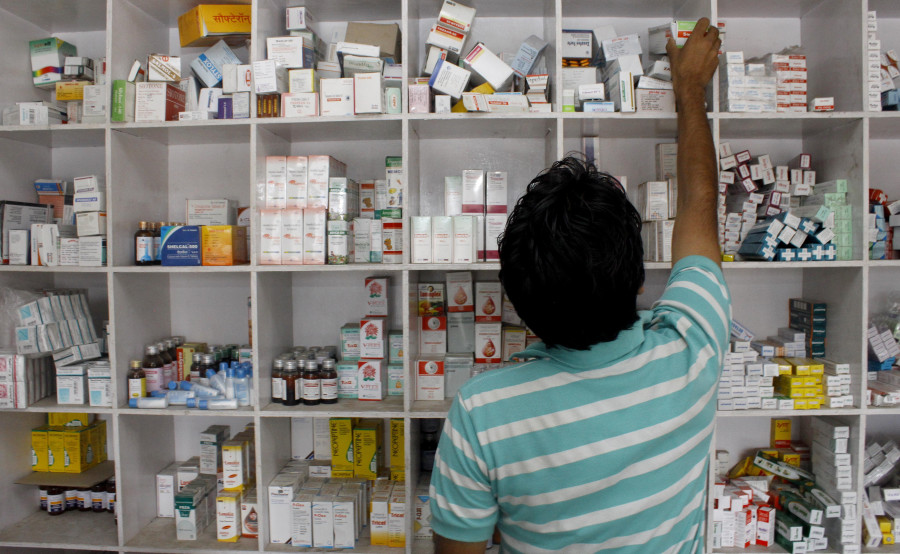Health
Government set to allow import of medicines used in critical care
Health facilities face shortage of medicines needed for high blood pressure, diabetes, cancer, heart and kidney ailments, among others.
Arjun Poudel
The Department of Drug Administration is preparing to grant special permission to import medicines used in critical care, as most health facilities across the country are facing an acute shortage of those life-saving drugs.
"We are collecting a list of medicines used in critical care," Santosh KC, spokesperson of the department, said. "We will work on easing the import of medicines required in the treatment of critical care and those not produced by national drug manufacturing companies."
Consultant doctors as well as health facilities, which provide treatment to cancer patients and those of kidney diseases, heart diseases, diabetes and others, have been drawing the attention of the department, the national drug regulatory body, towards the unavailability of critical drugs in the local market. “Our office is well aware of the hardship faced by many patients, as evinced by doctors and health facilities across the country,” said KC.
There is a shortage of medicines used in the intensive care unit, coronary care unit, and for diseases such as diabetes and cancer. Some patients have been spending thousands of rupees to import those medicines from India.
"We know that many of the drugs we prescribe are not available in the local market, but we prescribe them anyway because these drugs are crucial for their treatment,” Dr Rishi Kumar Kafle, executive director at the National Kidney Centre, told the Post. "They buy those medicines paying a high price in the black market or at pharmacies which sell their limited stock at a raised price."
According to Kafle, some chemists have been fleecing patients taking advantage of the shortage.
“The shortage of these medicines means that the pharmacies that keep a stock sell them at a higher price. The government agency should ease the import of critical drugs because it’s the patients who are bearing the brunt,” he said.
Professor Arun Shyami, former dean at the Institute of Medicine, said that doctors have been drawing the attention of concerned officials at the Ministry of Health and Population and the department about the seriousness of the issue.
"Some medicines are not needed in bulk and have a short shelf life," said Dr Shyami. "As a result, importers do not import these medicines in large quantities, while manufacturing companies also do not show interest in pushing the supply."
The department’s rules of inspecting the drug manufacturing companies have also reduced the supply of these medicines, as the companies that do not have a significant market in Nepal do not want to go through the cumbersome procedures of the regulating agencies.
"Pharmacies sell the drugs at a high price and sometimes they do not provide the bill, which could later become an issue for the pharmacies. It is too much hassle for them," Kumar Thapa, senior vice-chairperson of the Association of Private Health Institutions of Nepal, said. "We have urged the department’s officials to ease the import of drugs used in critical care."
He said that doctors prescribe the latest medicines produced by multinational companies, but the department does not allow their import putting patients in a fix.




 9.83°C Kathmandu
9.83°C Kathmandu















